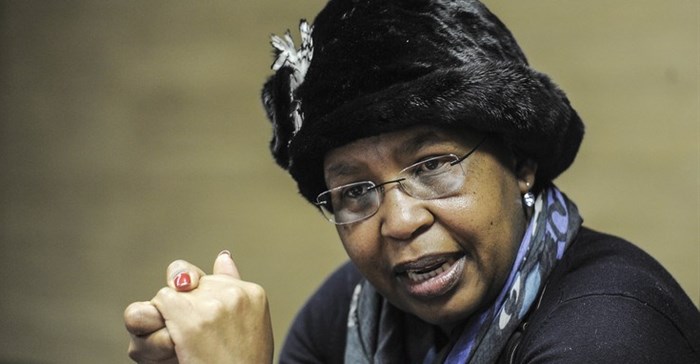
Top stories



Marketing & MediaWarner Bros. was “nice to have” but not at any price, says Netflix
Karabo Ledwaba 1 day


Logistics & TransportMaersk reroutes sailings around Africa amid Red Sea constraints
Louise Rasmussen 17 hours

More news

















The private healthcare provider had housed almost 2,000 long-term, state-funded psychiatric patients at its Life Esidimeni facilities in Johannesburg.
Patients would either be sent home or transferred into the care of community–based nongovernmental organisations, said Mahlangu. At least 36 patients have died following the move.

Last week, dozens of activists from organisations such as the Treatment Action Campaign (TAC) and public-interest law organisation Section27 joined affected families in a protest outside the Gauteng health department and handed over a list of demands.
This week, Mahlangu discussed the department's response to the deaths and why the matter may prompt court cases on both sides.
We've been through that. I should start by saying we have met with a lot of people and the majority of them were at the march.
When people take things to the street as if there is no engagement with the department, it worries me as to what exactly is the intention of this.
A number of patients … because their psych conditions could not be managed at NGOs (nongovernmental organisations), those [patients] were sent to Sterkfontein [psychiatric hospital], to Weskoppies [psychiatric hospital] and some to the Cullinan [care and rehabilitation] Centre.
We've employed additional nurses … and we are also reviewing the amount of money we spend on patient care.
From September, I started visiting the NGOs. Before that … I would not have visited NGOs and I don't think it would be my responsibility as an MEC.
The mental health team would have decided [on] these NGOs. The report we received would say something like: "This NGO qualifies."
These scheduled weekly visits by our team are important but [we will be doing] more unannounced visits. I have said to some of the NGOs like the TAC that I am going to invite you to the NGOs when I go there. We've also said to our hospitals that where they have a [nearby NGO operating], medical doctors, not only psychologists, must … visit those places to medically assess patients.
A memo delivered to the department asked for a list of the NGOs housing former Life Esidimeni patients and the number of patients who have died. Will you be responding to the demands?
We will respond to the issues that are practical to respond to. One thing that is impossible to do is to share details of family members without their consent — that we can't do. Section27 has asked us for the list [of NGOs and patients].
Section27 wants to sue the department, so they want the list for that purpose. They've said it in our formal meeting with them. They came with their lawyers; we came with ours.
Sho, I wouldn't know off the top of my head … Probably more than 10.
Where my name has been used inappropriately in certain things, I will definitely be able to do so. I am working with lots of people who work exceptionally hard and sometimes they will make mistakes. Things go wrong sometimes, [but] the question is how do you learn from the mistake?

This article was originally published by Bhekisisa, the Mail & Guardian’s Centre for Health Journalism. To read more
health stories from across Africa, go to bhekisisa.org